On May 23rd, criminal defense lawyer and Chris Watts YouTuber Scott Reisch posted a video about Nichol Kessinger. I was in the Netherlands at the time, and not paying the usual amount of attention to the Watts case [or Crime Rocket for that matter]. But this particular video did blip on my radar, sufficiently so that I passed it along to another Watts case follower via WhatsApp.

The video has since been completely removed from YouTube.
I’m not surprised. In the video, Reisch [I can never remember how to spell his name] records himself in his vehicle doing a little undercover detective work. If I recall correctly Reisch – sporting dark glasses – also flashes briefly to the brand of his vehicle on the steering consol. I won’t repeat the brand here, but it’s not a VW beetle, let’s put it that way.
While driving he suggests he has the address of Kessinger and is simply going to see – firsthand – whether she’s home, whether she answers the door and what she has to say.
Reisch records himself knocking on a door, and soon after, driving away. The apartment complex can be imputed from the rear view behind Reisch as he drives slowly away.
Now it’s possible Reisch himself subsequently removed the video from YouTube. It’s also possible that Kessinger’s legal machinery kicked in because of a perceived violation of her privacy. Whether or not Kessinger is under witness protection, and whether or not she lodged an objection to the video, the video did feel like it crossed an invisible ethical boundary. That was my perception. Irrespective of Kessinger’s role in the Watts case, she has every right to want to protect her privacy.
When I covered the Van Breda case, I praised a tabloid reporter who had snuck into a complex and done the same thing Reisch did, except someone [I won’t say who] opened the door, saw it was a reporter and slammed the door. The reporter then wrote an article not only identifying the complex but providing a glimpse of who and what she saw when the door opened, and even what she smelled – if you can believe that. Someone related to the Van Breda case later contacted me [I won’t say who] and complained about me praising the mischief of the tabloid reporter.
I explained that as a journalist, I have respect for those who go the extra mile as it were. On a recent trip through Europe I jumped off the train platform to take a photo at track level of some poppies while a train was slowly approaching [and while a station policeman was hollering at me].
So that’s really what I’m getting at. When a journalist exercises the courage of his convictions it resonates with me, because I know how much it has cost me.
At the same time, speaking to this person directly, I felt ashamed. I could see how such behavior [the tabloid journo spiel] was a total violation of privacy. In true crime there is a sort of consensus that everyone involved is fair game. While that is true to an extent in terms of investigating the situation, it doesn’t mean there are no boundaries whatsoever. It’s not a case that the innocent have total rights and that the guilty [and those related to them] have no rights.
Personally I was surprised by Reisch’s video before it was taken down. Going to the premises and finding someone not there is hardly content. It’s what journalists and editors call a “non-story”. Although Reisch never gave the details of the address, he did seem to hint that it was in Colorado and near to where someone he knew [I won’t repeat specifically who] was based. This potentially opened the door for others to figure out the address and possibly harass Kessinger.

There have been many lines crossed in the Watts case, none more so than the line crossed by Watts himself. Kessinger also crossed a line, but infidelity is hardly a face melting misdemeanor. It’s not classified as a crime, although certain legal and financial obligations can follow as a result. The point is it’s not behaviour exclusive to or monopolized by Kessinger, in fact it’s disturbingly common. When we talk about rights to privacy, and the way Facebook penetrates into the home, and onto a spouses’ phone for example, we can see how Facebook can ruin marriages. Ironically, Facebook seemed to play little role in the machinery or chicanery of the Watts case, certainly at face value.

What Watts did plunged many into a nightmare, including Watts himself. He soon saw his own privacy literally evaporate, and found himself completely out of his depth in trying to deal with it. But as troubling as Watts is a character [a man doomed by his own weaknesses and failures] what’s even more troubling is the Watts spiel as a whole. When we start to see the whole theater and all the players, something doesn’t sit well with us.

While I was in Europe, Anadarko started sewing up major merger talks with Occidental. The Chris Watts case had simmered down just in time for billion dollar deal-making. Was that accidental? Coincidence? Or is this whole strange, suffocated legal procedure – the hushed, rushed plea deal – part of much larger shenanigans?
The Watts murders, diabolical as they are, is it simply the tip of an enormous glistening black asteroid, invisible and unseen, but nevertheless hurtling towards us?
I find the social-cultural aspect of true crime interesting, because as tempting as it is to believe, Watts didn’t emerge in a vacuum. He also didn’t cross those ethical lines when he committed this crime, in a vacuum.
When we explore these ideas, they invariably reflect back at us, and our approach to ethics, often in areas we know about but don’t particularly care about. Like privacy. Like industry, and the approach of corporates to the protection of information and their casual if not reckless attitudes to society and ethics.
Although we don’t particularly care about these aspects, they seem to care about us as a voting bloc, or a portion of the marketing pie. They affect us. So maybe we should care.
While in Europe I did some research during intervals of leisure reading. The subject matter had to do with the source of man’s alienation.
Is it from other individuals that alienation springs, or from society? Who is to blame? Another way of putting the question is:
Who is to blame for crime?
It may seem a ridiculous question. Obviously the individual [the criminal] who commits a crime is responsible for it. While that’s certainly true, what’s underappreciated is the impact, or perhaps influence is a better word, of culture in who individuals ultimately become in our society. Do we simply let the chips fall where they may, and if Chris Wattses are part of that equation, so be it…? Or should we have a hand, some kind of say, some kind of sway, in the kind of society that we’re part of?
At the same time that we raise this question, we can also ask a slightly more targeted inquiry.
What impact does the culture of the workplace have on people, and their attitudes to other people?
In effect, what impact does the attitude of corporates have on society – on people, on us – and how does that trickle down to the workers who work there? Is it mostly harmless? Is it worth caring about or only worth caring about when there’s an annihilation?
What we’re really addressing in this Reisch scenario is the idea of privacy. How much should we care about it? Do we expect our privacy to be respected? Should the privacy of others be respected too?
Privacy laws while necessary can also be used to nefarious ends – to protect those who have something to hide. Just think about the Mueller report and Trump’s financial statements [protected because he was supposedly under audit]. Privacy is a real issue of our time, and social media and true crime provide a fascinating fulcrum, a nexus, in which to examine it.

What does it mean exactly to respect privacy?
When someone is involved in some way in a crime, especially a high-profile crime like this, do the same standards of privacy apply? For my part, I thought Nichol Kessinger was treated very mildly by investigators, given the time-sensitive circumstances and scale and scope of what happened [a triple murder, adultery, the pregnancy etc]. Even when she appeared to be less than completely forthcoming, there didn’t seem to be any threat attached to either withholding critical information, or – arguably – delaying the release of it. So privacy does work both ways.
By the same token, if we look at Shan’ann’s Facebook profile [which is still public], should the victim’s privacy be treated in a special way, perhaps even counter to their own wishes [in terms of social media]?
Are our modern laws – especially those pertaining to the online space – up to date in terms of the rational and reasonable rights citizens ought to have in terms of privacy?

In general, our obsession with cases presupposes a level of access to the information particular to criminal cases, but how much access is in the public interest and how much is intrusion?
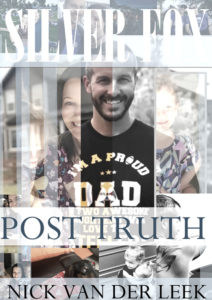
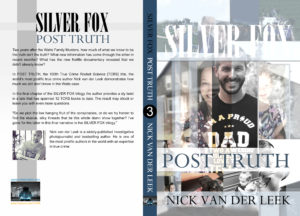
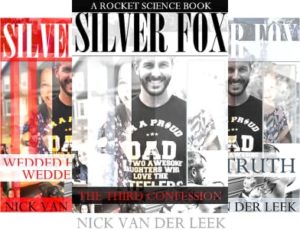
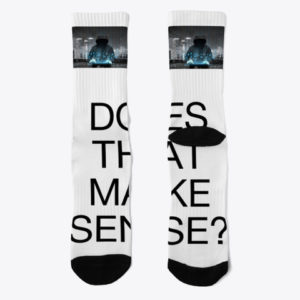

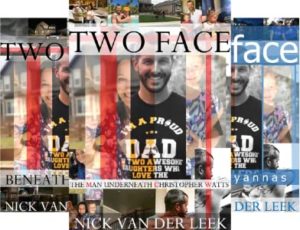

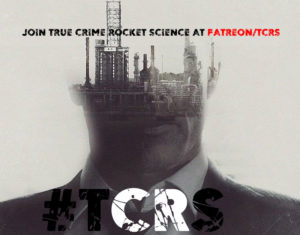

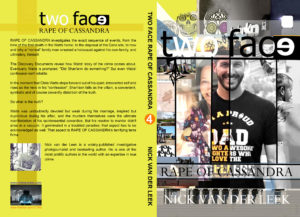
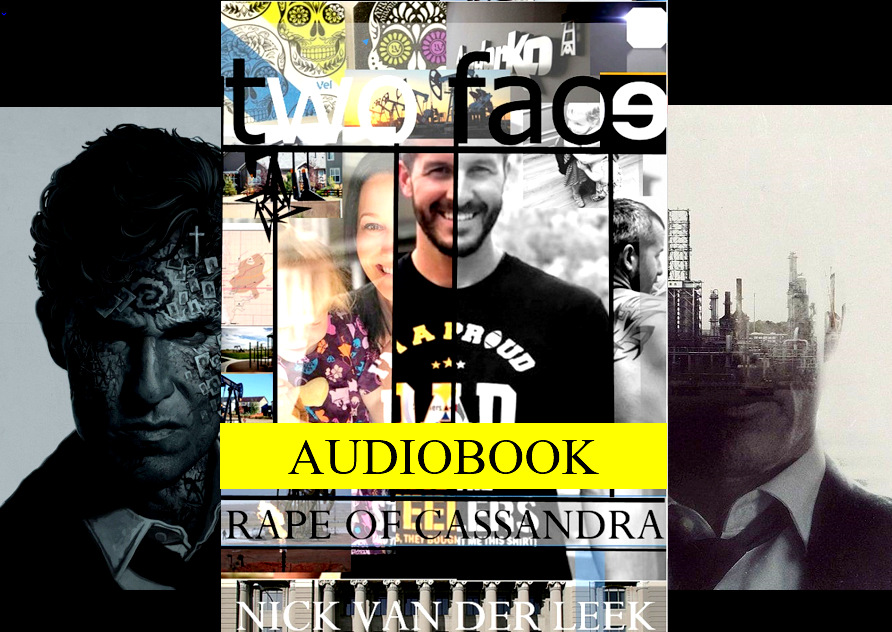
It’s interesting that he is trying so hard to locate her. I saw that he posted in a chriswatts sub-Reddit and was asking people if they had leads on where she was. Someone brought up Armchair Detective (of course) and a theory that she is in Wisconsin.
I remember seeing an out-of-focus screengrab posted by AD supposedly of NK. It was a woman walking a small dog.
He’s probably interested in getting the “only interview” with her, outside of the cops.
He probably took the video down when he realized what a fool he was , for asking if anyone knew where she was.
Obsessed.
Usually I agree with certain things Scott Reisch says, however the entire removed video was just cringe worthy and classless. Basically something I would expect from Shanann and not a respected defense attorney. Not surprised he took it down, not only did it cross a line but it was a garbage “story” if you could even call it that.
Yes, as if having some strange man bang on your door with a camera poked in your face and “hi, I’m Scott Reisch do you have a minute?” would get her to open up about Chris Watts 🙂
To address your question of where criminals come from, there are a lot of implicit promises within our society that simply are false for a great many people. For example, the “American Dream” is increasingly out of reach for American citizens. Even a college education is out of reach for many, and that’s regarded as the foundation of a financially successful life.
Part of living in society is following the rules. And following the rules is supposed to gain the person in question all these benefits – decent job that enables them to earn a living, to be able to secure an adequate place to live, the ability to have a social circle of friends, to fall in love and marry, have children, etc. etc. etc. When people look at their lives and realize they can’t have these things, they often become frustrated and angry. That murderer Elliot Rodger targeted pretty women from a college sorority to kill because he felt he’d done all the right things – grooming, tailoring, possessions, being nice – and none of these high-status young women wanted to fulfill his dreams by dating him. So he went on a killing spree. We might argue that “Don’t go on killing sprees” is Rule #1 in society. When the perceived rewards are not forthcoming, why continue to follow the rules? Why continue to *play* by the rules when it’s clear there’s no chance of you ever winning that game?
Where this kind of analysis become murky is with the Chris Watts case. Perhaps the way it parallels is that Chris married a beautiful woman he was in love with and they had two adorable daughters. He always worked hard, took care of his home and family, and was basically as straight-arrow a man as anyone could find. So the reward he expected, per society’s mythology, was that, if he did all these things, he’d be happy. He’d be embraced and adored within his family as husband and daddy. Yet Shan’Ann ignored him in favor of social media and making those dumb sales videos, even dismissing and rejecting him – he couldn’t even move freely within his own home. And the way she obsessively micromanaged eeeeeverything and he could never do anything right – who could put up with that??
That image of the parchment paper box on the pan. WHY was she asking him to put the parchment paper on the pan, anyhow? That only takes, like, 3 seconds! It’s not like “Will you take out the trash” which not only is something that might have been too heavy for her or involved lifting she didn’t feel capable of in her “delicate condition” and was a necessary step to having room in the receptacle for the waste that would be produced in the course of making the dinner or whatever. It was truly a trivial request – she should not have made it.
So back to Chris. He was like that frog in the pot – until Shan’Ann took the kids to NC for the summer and things started developing with NK, Chris did not realize how much he was dying in that situation with Shan’Ann. No matter how much he worked, the money was *GONE*. He wasn’t getting ahead. No matter what he did – and by all accounts, he was frugal and not in the least extravagant – financially, they were getting deeper and deeper into a hole they couldn’t bankruptcy their way out of. Meanwhile, Shan’Ann is sitting around the house, going out with her friends for frivolous expensive manicures and pedicures, buying clothes, making up ridiculous custom T-shirts he’s going to be forced to wear (more demeaning than dog sweaters), and just basically flushing everything he’s working for down the toilet all in service to her delusional quest to present some fanciful image of “living the life” to lure more unsuspecting people into losing their everything in her latest (of 7) installment in her obsessive MLM addiction.
So Chris jumped out of the pot just before the water hit boiling, and what does he find? Nowhere to go. I agree that he probably caught a glimpse of Shan’Ann’s texts with her friends, where they were encouraging her to take everything and make sure he not only got nothing but his life would be a living hell from then on. Everything HE had worked so hard for. Everything HE had secured for THEIR family. Now Shan’Ann was preparing to go on the warpath and destroy him. No, divorce wouldn’t work out. Not at ALL. Chris would be destitute for the rest of his life. He didn’t want that – that wasn’t want the “The Good Life” narrative of our society’s mythology had promised. Chris had done everything right. And now he was facing complete annihilation at the hands of this woman he’d trusted.
So why should he play by the rules? It was clear to him now that the rules didn’t work. Didn’t reliably return rewards. Sometimes people just plain got screwed. So he started thinking *outside* the rules. How could he get to where he wanted to go, via the uncharted territory outside society’s rules? He came damn close, too.
Thanks for sharing your thoughts. Agree 100%. Watts being privy to Shan’ann’s iCloud and those vitriolic texts is starting to figure more and more into the mechanism of motive, in my opinion.
Is there a record of these vitriolic texts? I’m curious as haven’t seen this mentioned anywhere
before.
https://crimerocket.com/2019/02/17/fuck-him-fuck-you-and-fuck-you-and-fuck-you/
I’ve enjoyed reading your views, Nick, so here’s my two cents. Like many, I’ve also pored over this case; read and re-read all the discovery, watched and re-watched all the video evidence. I’ve been a journalist since 1988 and have covered dozens and dozens of court cases. I believe the person most responsible for this tragedy is Cindy Watts. She was the archetypal narcissistic parent and set her stall against the strong-willed Shan’ann early on. What mother boycotts her only son’s wedding? Blanks her grand-daughter’s birthday party? Chris and Ronnie are both very weak men, who enabled Cindy’s behaviour. She should have put Chris’ happiness and marriage before her own petty power-tripping. Many in-laws don’t get on with their children’s partners, but they subjugate their feelings, for the greater good. Cindy waged a psychological war against Shan’ann and a better person would have been bigger than that. As family matriarch, she had a duty to put her feelings second. But, she put herself ahead of her son, grandchildren and family. She created and nurtured the schism in the family. In my view, without Cindy’s interference, Shan’ann, Bella, Cece and Niko would all be alive today.
Well, Cindy and Ronnie and Jamie didn’t attend the wedding. I’m not sure if Cindy was so big a factor, simply because Chris Watts wasn’t particularly close to her. In those first few days he wanted his father at his side. In the discovery Shan’ann also says Ronnie is the only one he was ever really close to. One could make the argument that by killing Shan’ann he was symbolically killing his own mother. The person most responsible for this tragedy is Chris Watts.
He fired the gun. Cindy gave him the bullets.
So do you think she should be indicted as an accessory before the fact?
No, of course not. But, I genuinely believe Cindy (and daughter Jamie) waged a psychological war against Shan’ann and their naked enmity conflicted and compromised Chris. I doubt this tragedy would have happened, if they had put the happiness and welfare of his family first. I also believe Ronnie, as family patriarch, should have addressed their bullying. But, he is a weak man, as is his son. So, they both sought strong, domineering wives. Cindy, Jamie and, tacitly, Ronnie paved the way for this tragedy. To boycott the wedding was a malicious and unforgivable statement. To block Shan’ann on Facebook was the act of petty juveniles; not mature people in their 60s. For people so eager to profess faith in the Bible, they showed they have learned little from it. They couldn’t turn the other cheek.